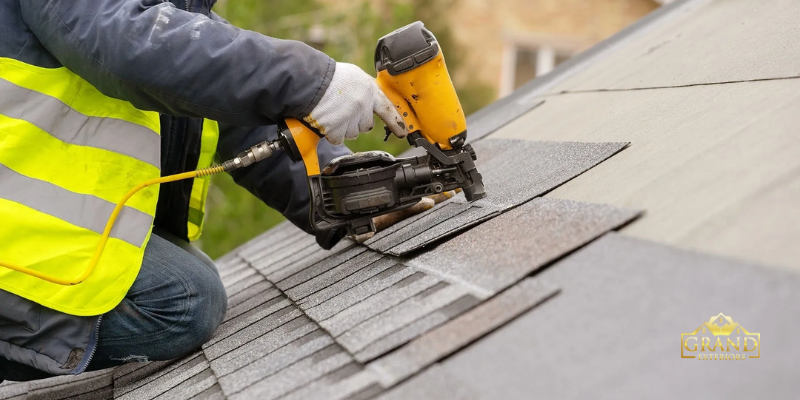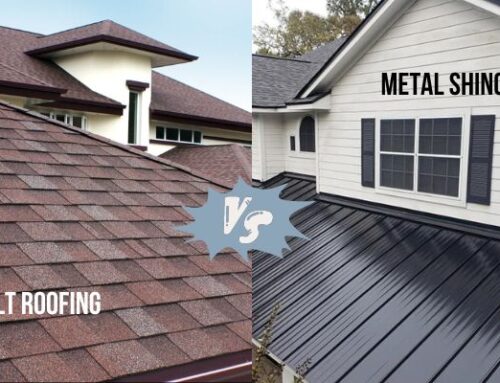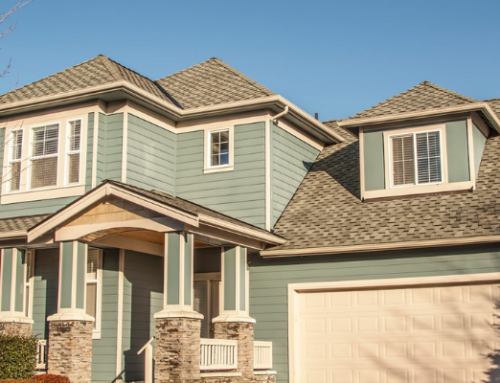As a homeowner, one of the most critical investments you can make is the roof over your head. Your roof protects you, your loved ones, and your belongings from the elements, making it essential to ensure it’s in top-notch condition. When it comes to roofing services, selecting the right provider is paramount. But with numerous options available, how do you navigate the selection process? Here, we delve into the key factors to consider when choosing a residential roofing service provider.
Experience and Reputation:
When selecting a residential roofing service provider, their experience and reputation are paramount. A company that has been in the roofing business for a significant amount of time has likely encountered a variety of challenges and learned how to overcome them effectively. Look for reviews and testimonials from past customers to gauge the company’s reputation. A strong reputation is built on consistently delivering high-quality workmanship, excellent customer service, and completing projects on time and within budget.
Licensing and Insurance:
It’s essential to verify that the roofing service provider holds the necessary licenses and permits required by your local authorities. Licensing ensures that the company complies with building codes and regulations, which is crucial for the safety and structural integrity of your home. Additionally, inquire about the company’s insurance coverage, including liability insurance and workers’ compensation. This protects you from potential liabilities in case of accidents, injuries, or property damage that may occur during the roofing project.
Quality of Materials:
The quality of materials used in your roofing project significantly impacts its longevity, performance, and aesthetic appeal. A reputable roofing service provider should offer a selection of high-quality roofing materials, including asphalt shingles, metal roofing, tile, or slate, depending on your preferences and budget. Ask the company about the brands they work with and the durability ratings of the materials. Investing in premium materials may cost more upfront but can save you money in the long run by reducing the need for frequent repairs and replacements.
Warranty Offered:
A reliable roofing contractor stands behind their work and should offer warranties on both materials and workmanship. The warranty provides you with assurance that any defects or issues with the roofing materials or installation will be rectified at no additional cost within a specified period. Be sure to review the terms and conditions of the warranty carefully, including any exclusions or limitations, to understand what is covered and for how long.
Transparent Pricing:
Obtain detailed estimates from multiple roofing contractors before making a decision. The estimate should outline the scope of work, materials to be used, labor costs, and any additional fees or expenses. Beware of contractors who provide vague or incomplete estimates, as this may lead to unexpected costs down the line. While cost is an important factor, prioritize value over the lowest price. A roofing service provider that offers competitive pricing while maintaining high standards of quality and professionalism is a better investment in the long term.
Customer Service and Communication:
Excellent customer service and communication are essential throughout the roofing project. Choose a roofing company that is responsive to your inquiries, provides clear and timely updates on the progress of the project, and addresses any concerns or questions you may have promptly. A company that values open communication and prioritizes customer satisfaction is more likely to deliver a positive experience and superior results.
Local Knowledge and Experience:
Opting for a roofing service provider with local knowledge and experience can be advantageous. Local contractors are familiar with the weather patterns, building codes, and permit requirements specific to your area. This expertise enables them to recommend roofing materials and techniques that are best suited to withstand local climate conditions and adhere to regulatory standards.
References and Portfolio:
Request references from the roofing company and take the time to view their portfolio of completed projects. Seeing examples of their past work firsthand can give you insight into the quality of their craftsmanship, attention to detail, and ability to tackle various roofing designs and challenges. Additionally, contacting past clients allows you to gather feedback about their experiences with the company, providing valuable insights into their professionalism and reliability.
Safety Protocols:
Safety should be a top priority for any roofing project. Inquire about the company’s safety protocols and practices to ensure that they prioritize the well-being of their workers and adhere to industry safety standards. This includes measures such as providing proper safety equipment, conducting regular safety training, and implementing procedures to prevent accidents and injuries on the job site.
Cleanup and Disposal:
A reputable roofing service provider should include cleanup and disposal of debris as part of their service. Before hiring a contractor, confirm whether they will remove old roofing materials, nails, and other debris from your property upon completion of the project. Leaving debris behind not only detracts from the appearance of your home but can also pose safety hazards and damage landscaping.
Communication Channels:
Establish clear communication channels with the roofing company from the outset. Determine who will be your primary point of contact throughout the project and how communication will be facilitated, whether through phone calls, emails, or in-person meetings. Effective communication ensures that you stay informed about the progress of the project, any potential delays or issues, and enables you to address concerns promptly.
Conclusion:
In conclusion, selecting a residential roofing service provider requires careful consideration of several key factors. By prioritizing reputation, experience, quality, communication, safety, and other essential criteria, you can make an informed decision that ensures your roof remains durable, functional, and aesthetically pleasing for years to come. Remember to conduct thorough research, ask relevant questions, and trust your instincts when choosing the right roofing contractor for your home.




